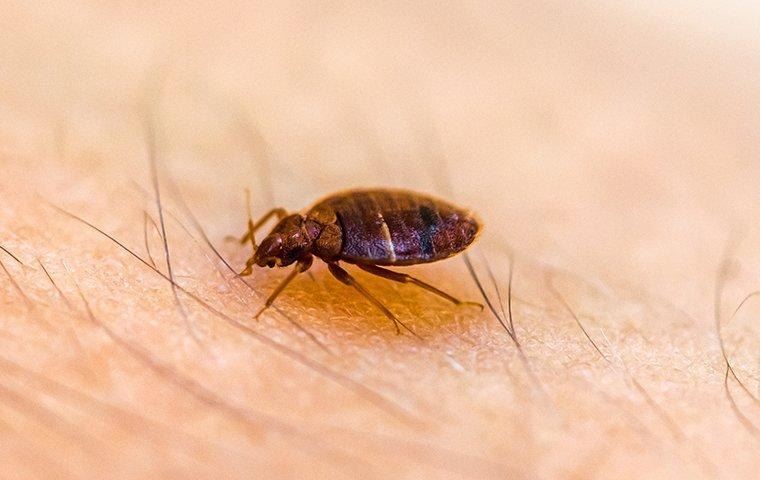Tired of itchy bites and sleepless nights? You might have heard that rubbing alcohol can kill bed bugs, but does it work, or is it just another myth?
Bed bugs are some of the most stubborn household pests, and finding a quick, affordable solution is every homeowner’s dream. One popular remedy making the rounds is rubbing alcohol.
But does rubbing alcohol kill bed bugs, or are you just wasting time and putting your home at risk? This guide explains how rubbing alcohol works, what the science says, and whether it’s the right solution for your pest problem.
How Does Rubbing Alcohol to Kill Bed Bugs work?
Rubbing alcohol, also known as isopropyl alcohol, is a common household disinfectant. It’s found in most medicine cabinets and is typically used to clean cuts or sanitize surfaces. However, because of its drying and toxic properties, many believe it can kill bed bugs on contact.
The theory is simple: rubbing alcohol breaks down the bug’s protective outer shell, dries them out, and eventually kills them. But the real question isn’t just whether rubbing alcohol kills bed bugs, but how well it works, and can it wipe out a full infestation?
Can Rubbing Alcohol Kill Bed Bugs Instantly?
Here’s the truth: yes, rubbing alcohol can kill bed bugs, but only in very specific situations.
According to pest control experts, isopropyl alcohol with at least 70% concentration can kill some bed bugs and even some of their eggs on direct contact. The keyword here is direct. Unless the bug is fully soaked in alcohol, it may survive. That means spraying rubbing alcohol randomly around your room isn’t going to stop the infestation. Bed bugs hide in cracks, crevices, and deep inside fabrics, places the spray might not reach.
Studies have shown that rubbing alcohol is only about 50% effective when used in real-life conditions. That’s far from a guaranteed solution.
Why Rubbing Alcohol Isn’t a Complete Bed Bug Solution
Even though rubbing alcohol might seem like a quick and easy fix, there are several reasons it shouldn’t be your main pest control method:
1. Limited Reach
Bed bugs are masters at hiding. They squeeze into mattress seams, behind headboards, under baseboards, and inside electrical outlets. Unless you spray them directly, alcohol won’t touch them.
2. Dangerous to Use
Rubbing alcohol is highly flammable. Spraying it on bedding, furniture, or around electrical outlets increases the risk of fire. There have been real reports of accidents caused by overuse of alcohol sprays in homes.
3. Short-Term Effect
Even if you kill some bed bugs today, the rest will continue to reproduce and spread. One female bed bug can lay up to 500 eggs in her lifetime, so missing just a few means you’ll be dealing with the same problem again in no time.
Better Alternatives for Bed Bug Control
Instead of relying only on rubbing alcohol, consider more effective and safer solutions:
- Professional Pest Control: If the infestation is serious, calling a licensed exterminator is the safest and most effective option. They use heat treatments, insecticides, or other proven methods to wipe out bed bugs entirely.
- Steam Cleaning: Bed bugs and their eggs die at temperatures above 120°F. Using a steamer on mattresses, couches, and cracks is a great non-toxic solution.
- Bed Bug Mattress Covers: These zippered covers trap bugs inside your mattress and prevent new ones from hiding there.
- Vacuuming & Decluttering: Regular vacuuming can reduce the number of bed bugs, especially around sleeping areas. Always seal and discard the vacuum bag right away.
Final Thoughts: Does Rubbing Alcohol Kill Bed Bugs?
So, does rubbing alcohol kill bed bugs? Yes—but only on direct contact, and even then, not all of them. It can kill some bed bugs and eggs, but it’s far from a reliable or complete solution. Worse, it can be dangerous if not used carefully.
If you’re dealing with a minor issue and want to try rubbing alcohol as a temporary solution, use it safely and responsibly. But if you’re facing a full-blown infestation, it’s time to call in the pros or use more effective treatments.
Don’t Let Bed Bugs Take Over Your Home
Instead of relying on risky DIY fixes, use a smart, multi-step approach to win the battle. Keep your home clean, monitor problem areas, and take action fast at the first signs. Bed bugs can spread quickly, but with the right tools and knowledge, you can stay one step ahead.
